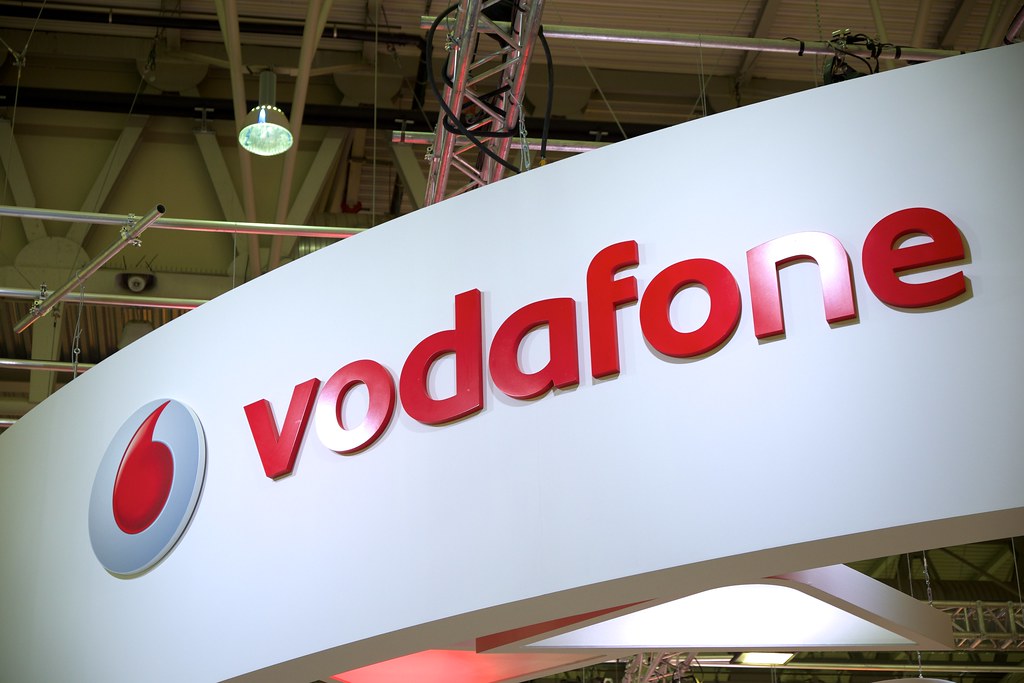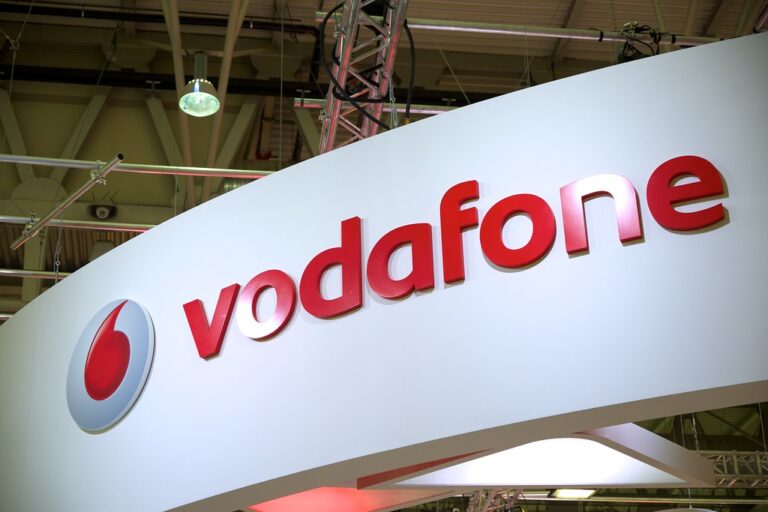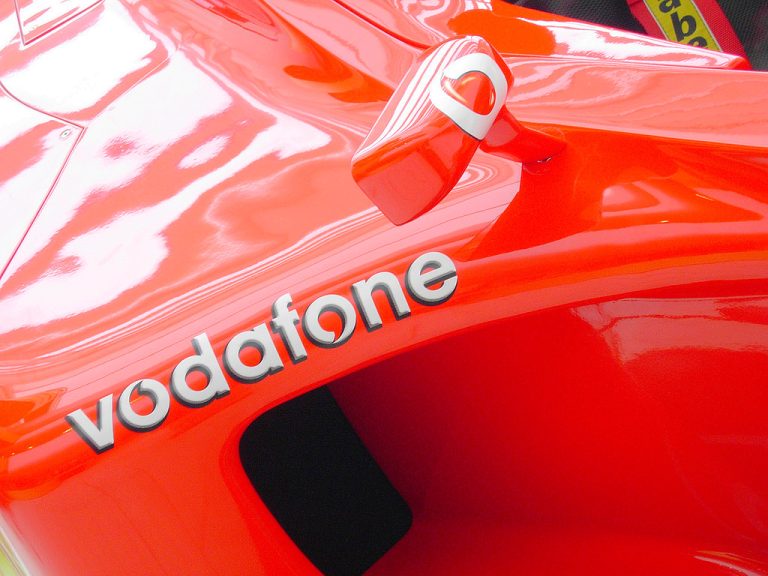Vodafone Group Plc (LON:VOD) has announced its FY20 Preliminary results.
· Supporting society with rapid, comprehensive and coordinated COVID-19 response
· Good financial performance with growth in revenue, adjusted EBITDA and free cash flow
· Delivering against our strategic priorities and focusing activity to create value for stakeholders
· Accelerating digital transformation with new 3-year ambition of over €1 billion net cost savings
· European TowerCo now operational, on-track for early 2021 monetisation
· Group revenue grew by 3.0% to €45.0 billion, supported by improving commercial momentum in Europe
· Adjusted EBITDA grew by 2.6%* to €14.9 billion, reflecting revenue progression and cost programme success
· Free cash flow grew by 12.2% to €4.9 billion, supported by disciplined capital management
· Dividends per share of 9.00 eurocents
· Resilient business model with expected free cash flow (pre-spectrum) of at least €5 billion in FY21
Nick Read, Group Chief Executive, commented:
“Vodafone has delivered a good financial performance – growing revenue, adjusted EBITDA and free cash flow – whilst building strong commercial momentum through the year and executing at pace on our strategic priorities. We have also continued to invest in our fixed and mobile Gigabit network infrastructure and digital services, to provide faster speeds for our customers, as well as successfully managing the recent surges in demand. The services Vodafone provides are more important than ever and we are committed to playing a key role in society’s recovery to the ‘new normal’.
I am pleased with the rapid, comprehensive and coordinated way we responded to the COVID-19 crisis. I want to give my personal thanks to the entire Vodafone team, who through their dedication, expertise and professionalism, have kept families, friends and communities connected, enabled students to continue their education, helped businesses operate and proactively supported governments to deliver critical services.”
Summary ⫶ Good performance with improved commercial momentum
Basis of preparation
On 31 July 2019, we announced the completion of the acquisition of Liberty Global’s assets in Germany and Central and Eastern Europe (‘CEE’) and the disposal of Vodafone New Zealand. As a result, our FY20 results include Vodafone New Zealand for four months, and the acquired Liberty Global assets for eight months. For the purposes of comparison, all organic figures exclude Vodafone New Zealand and the acquired Liberty Global assets.
On 1 April 2019, a new accounting standard, IFRS 16 ‘Leases’, was adopted for our statutory reporting, without restating prior year figures. As a result, the Group’s statutory results for the year ended 31 March 2020 are on an IFRS 16 basis, whereas the comparative period results for the year ended 31 March 2019 are on the former basis of accounting. Note 1 of the condensed consolidated financial statements explains the impact of the adoption of IFRS 16 on the consolidated financial position as at 1 April 2019.
For FY20, the implementation of IFRS 16 means that a revised definition for adjusted EBITDA has been applied. This restricts period-on-period comparability of certain of the Group’s alternative performance measures.
All amounts in this document marked with an “*” represent organic growth, which presents performance on a comparable basis, both in terms of merger and acquisition activity (notably by excluding the disposal of Vodafone New Zealand and the acquired Liberty Global assets), movements in foreign exchange rates and the impact from the implementation of IFRS 16 ‘Leases’. Organic growth is an alternative performance measure. See “Alternative performance measures” on page 54 for further details and page 56 for the location of the reconciliation to the respective closest equivalent GAAP measure.
Net debt marked with a “**” represents net debt adjusted in FY20 to exclude derivative gains in cash flow hedge reserves, the corresponding losses for which are not recognised on the bonds within net debt and which are significantly increased due to COVID-19 related market conditions.
Financial performance
Group revenue increased by 3.0% to €45.0 billion (FY19: €43.7 billion), reflecting the underlying improvement in commercial performance and the contribution from the acquired Liberty Global assets, which were consolidated from August 2019, partially offset by the disposal of Vodafone New Zealand.
The Group made a loss for the year of €0.5 billion (FY19: €7.6 billion), of which €0.9 billion was attributable to owners of the parent. The loss included profit from operations together with a profit on the disposals of Vodafone New Zealand and Vodafone Malta (€1.2 billion) and a gain on the formation of the INWIT joint venture (€3.4 billion). Vodafone’s share of losses related to Vodafone Idea (€2.5 billion) is principally due to adverse legal judgements by the Supreme Court in India and the Group carrying value of Vodafone Idea has been reduced to €nil. Further, impairments totalling €1.7 billion in Spain, Ireland, Romania and Automotive and mark-to-market losses of €1.1 billion were recognised. As a result, the basic loss per share for the year was €3.13 eurocents.
Group organic service revenue increased by 0.8%* to €37.9 billion (FY19: €36.5 billion), with improved commercial performance across all major markets. Adjusted EBITDA increased by 2.6%* to €14.9 billion (FY19: €13.9 billion). This growth was the result of the success of our cost transformation agenda, alongside improving commercial momentum and organic service revenue growth. This enabled us to deliver a fifth consecutive year of adjusted EBITDA margin expansion, increasing to 33.1% in FY20, from 28.3% in FY15.
Cash flow, funding & capital allocation
Free cash flow (pre-spectrum) increased by 4.7% to €5.7 billion (FY19: €5.4 billion). Organic adjusted EBITDA growth and the adjusted EBITDA contribution from the acquired Liberty Global assets was partially offset by higher cash interest and higher capital additions for the acquired Liberty Global assets. Spectrum payments for the year totalled €0.2 billion (FY19: €0.8 billion) and restructuring and integration costs totalled €0.6 billion (FY19: €0.2 billion). Free cash flow (post-spectrum and restructuring/integration costs) was €4.9 billion (FY19: €4.4 billion).
Net debt as at 31 March 2020 was €42.2 billion** compared to €27.0 billion as at 31 March 2019. This increase in net debt reflects cash outflows and debt of €18.5 billion relating to the acquisition of the Liberty Global assets in Germany and Central and Eastern Europe, spectrum accruals and cash payments of €1.7 billion primarily relating to 5G spectrum purchases in Germany, dividend payments of €2.3 billion, and the completion of the buyback for the mandatory convertible bonds issued in 2016 of €1.1 billion. This was partially offset by proceeds of €4.4 billion primarily relating to the disposals of Vodafone New Zealand, Vodafone Malta and the INWIT combination in Italy.
We aim to maintain our financial leverage within a range of 2.5-3.0x net debt to adjusted EBITDA. At the end of the financial year financial leverage was 2.8x**. Total dividends per share for the year are 9.0 eurocents (FY19: 9.0 eurocents), implying a final dividend per share of 4.5 eurocents, which will be paid on 7 August 2020.
COVID-19 | Supporting the digital society through critical connectivity
We are committed to doing our utmost to support society during this period of uncertainty and change. As a provider of critical connectivity and communications services enabling our digital society, we announced a five-point plan to help the communities in which we operate in Europe. Our plan is to:
· maintain network service quality;
· provide network capacity and services for critical government functions;
· improve dissemination of information to the public;
· facilitate working from home and help small and micro businesses within our supply chain; and
· improve governments’ insights in affected areas.
Teams throughout our markets have worked tirelessly to deliver our five-point plan and to support all the communities in which we operate. So far, the actions we have taken have totalled donations of goods and services of approximately €100 million, reaching 78 million customers. Some of the actions and initiatives include the following:
· In Italy, we have donated more than 1,200 smartphones and tablets to hospitals, foundations and non-profit organisations to enable patients to remain in touch with relatives.
· In Spain, we have provided over 30,000 SIM cards with 60GB of data to hospitals and care centres.
· Vodafone Germany and Corevas have provided EmergencyEye technology to allow doctors to assess COVID-19 symptoms remotely. We are ensuring that the video chat technology always operates swiftly in an emergency.
· In the UK, we have provided vital connectivity for new hospital facilities in London, Cardiff, Manchester and Glasgow.
· In Portugal, we have established remote monitoring cameras to allow doctors and nurses to monitor patients in over 100 hospital rooms.
· In Greece, Vodafone is working to donate equipment and hands-free accessories to healthcare personnel in COVID-19 clinics across the country’s key hospitals.
· In the Czech Republic and Hungary, we are working with health ministries to provide official COVID-19 information in real-time through additional features on their Life-Saving app. The app has already reached 1.3 million Czech users and more than 500,000 users in Hungary.
· Vodafone Romania has installed new mobile sites for temporary hospitals in Bucharest and Constanta.
· Vodafone Turkey has purchased and donated 10 ventilators to a public hospital and provided public healthcare workers with 150 tablets with 30GB of free data.
· In South Africa, Vodacom has partnered with Discovery Health to offer easy access to online COVID-19 screening and consultations for all South Africans.
Further information regarding Vodafone Group’s response to COVID-19 is detailed at vodafone.com/covid19.
Financial performance ⫶ Good results with improved commercial momentum
· Group revenue grew by 3.0% to €45.0 billion, driven by improving commercial momentum in Europe
· Total net operating cost savings of €0.4 billion in the year, facilitated by continued digital transformation
· Adjusted EBITDA grew by 2.6%* to €14.9 billion, reflecting commercial momentum and cost savings progress
· Free cash flow (pre-spectrum) grew by 4.7% to €5.7 billion, driven by revenue and adjusted EBITDA growth and capital discipline
· Dividends per share of 9.0 eurocents
Group ⫶ Good financial performance, in line with our plans1,2
Notes:
1. IFRS 16 ‘Leases’ was adopted on 1 April 2019 for our statutory reporting, without restating prior period figures. As a result, the Group’s statutory results for the year ended 31 March 2020 are on an IFRS 16 basis, whereas the comparative period for the year ended 31 March 2019 are on an IAS 17 basis. Note 1 of the unaudited condensed consolidated financial statements explains the impact of the adoption of IFRS 16 on the consolidated financial position at 1 April 2019.
2. The 2020 results reflect average foreign exchange rates of €1:£0.87, €1:INR 78.78, €1:ZAR 16.42, €1:TRY 6.52 and €1: EGP 18.18.







































